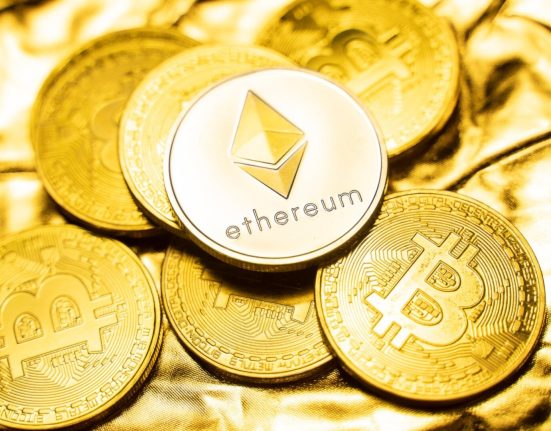Whether we realize it or not, the way in which our families handle money can play a significant role in our adult lives and impact the way we view our future finances, long before we transition into our own set of grown-up responsibilities.
The habits we observe can shape the way we balance a monthly budget or learn how to spend wisely for ourselves and our families—or even run a business. To provide insights into their own financial histories, 15 Forbes Finance Council members each share their very first memory of money handling and how it has influenced their relationship with it today, personally or professionally.
1. Utilizing Color-Coded Envelopes To Prioritize Financial Needs
My first money memory was my parents using colored envelopes to prioritize our family’s needs: green could wait, red was urgent, yellow was “if we can swing it.” That visual system stuck with me. Today, I use color and story in finance because money isn’t just math; it’s emotion, timing and strategy. That moment taught me to respect the psychology of money, not just numbers. – Karla Dennis, KDA Inc.
2. Managing The Family Business Finances As A Teen
Long before I knew what a CFO was, I was managing the cash register at my mother’s restaurant as a teen, balancing the books and writing checks to vendors. That hands-on experience taught me how money moves through a business and instilled a deep respect for financial stewardship. It’s the root of my passion for helping others build strong financial foundations. – Nike Ajao, OneBarrow Corporation
3. Creating And Selling A Local Homemade Product
As a kid, I made homemade tooth powder from a science book, and then I sold it to a shopkeeper. This was my first taste of earning money as an entrepreneur. That small success taught me the value of creating and selling. Today, I’ve moved from corporate to business and now mentor others to take control of their financial futures through entrepreneurship. – Giri Lankipalle, Giri Lankipalle Financial Services
4. Watching My Family Promote Economic Empowerment
My family has worked for a long time to bring Black and Indigenous communities into the economic mainstream. In the 1800s, my great-great-grandfather, Charles Cohee Jr., championed land rights, education and financial literacy. Inspired by that legacy, I’ve spent my career using technology, such as AI, to equalize and expand economic opportunity and promote global financial literacy and social equality. – Kevin Cohee, OneUnited Bank
Forbes Finance Council is an invitation-only organization for executives in successful accounting, financial planning and wealth management firms. Do I qualify?
5. Saving Birthday Money In My Piggy Bank
My first memory of money was saving birthday dollars in a piggy bank. This taught me patience and the value of saving over spending. As I grew, I learned the power of investing in myself and my business. Money brings safety, but intelligent risk-taking creates opportunity, growth and lasting satisfaction in turning ideas into reality with the right people, vision and purpose. – Blake Harris, Blake Harris Law
6. Attending Stockbroker Meetings With My Dad
Growing up in India in the 1970s, I was exposed to investing early when my dad would bring me with him to visit his stockbroker. With a checkbook in hand and paper share certificates, I watched in awe as money changed hands and stocks were bought or sold. Names were added or scratched out on the back of certificates to show ownership. The message was clear: Invest your money wisely and let it grow. – Sonya Thadhani Mughal, Bailard, Inc.
7. Bouncing Back From A Business Failure
I was always curious why some people seemed relaxed about money and others were constantly stressed. Once I started my own business, I learned the hard way about cash flow and risk. My first business failure still drives me today. I don’t just manage money now; I try to understand the emotions and systems behind it. – Nick Chandi, Forwardly
8. Learning How To Generate Multiple Income Streams
As a child, my grandparents taught me that wealth means making money work for you, not just working for it. Seeing how investing in the market, real estate and business can create financial stability, and how poor choices like over-investing in one company can cost you everything, ignited my passion. Now, I assist others with investing and planning so they can improve their financial situation. – Letitia Berbaum, Blue Sands Wealth
9. Becoming Aware Of Family Financial Anxieties
My first memory of money was breaking a jar of jelly beans as a kid. I thought it was expensive and panicked, fearing it would cause a fight between my parents about money. Looking back, that moment stands out because it showed I understood the weight money carried in our home. It shaped how I view finances today with empathy, responsibility and a drive to bring peace, not stress. – Bob Chitrathorn, Wealth Planning By Bob Chitrathorn of Simplified Wealth Management
10. Failing To Understand The Risk Of Money Mismanagement
My first real memory of money wasn’t from childhood, but from the moment I started earning a bigger income. I sold risky loans without understanding their consequences and spent carelessly. I lost everything in the 2009 recession. So whenever money is an issue, I remember that lesson of rising fast and falling hard. Without wisdom, education and integrity, wealth is fleeting. – Neil Anders, Trusted Rate, Inc.
11. Opening My First Bank Account With Allowance Money
My first memory of money was receiving an allowance for chores, opening a bank account and regularly visiting the branch to deposit and withdraw. It taught me the value of earning and saving early. This experience shaped my disciplined, goal-driven approach and inspired my passion for financial literacy and empowering others financially. – Meelan Gupta, GeBBS Healthcare Solutions Inc.
12. Being Curious About How Money Was Physically Made
When I was a kid and people asked what I wanted to do when I grew up, I said, “I want to make money”—as in literally print it. I wasn’t thinking about spending it; I wanted to understand how it was created. That curiosity shaped everything I do now: designing financial structures that give people the power to build, keep and control wealth. – Terry Lamb, TLAMB INC.
13. Understanding Global Currency Diversification
As a child, I collected coins from different countries, fascinated by their unique designs and histories. This early curiosity taught me to appreciate diversity in value—each currency held meaning beyond its number. Today, in equity management, I apply that perspective, seeking opportunities across markets and valuing the distinct strengths each investment brings. – Tomas Milar, Eqvista Inc.
14. Understanding How Money Can Influence False Perceptions
When I was 12 years old, my mom bought me pricey Jordache jeans—remember the “You’ve got the look I want to know better” campaign? I didn’t want that look—and I didn’t like the cost. A fight followed. That moment taught me that money choices reflect identity and values, not just math. Today, I help clients explore their money history to build plans rooted in who they are—plans they’re more likely to follow and achieve. – Brian Lasher, Euclid Harding LLC
15. Saving Up For A New Toy
My first memory of money was saving coins in a jar to buy a toy I wanted. It taught me the value of patience and planning. Today, that same mindset enables me to make thoughtful financial decisions in my business, focusing on long-term goals rather than short-term gains. – Jared Weitz, United Capital Source Inc.
The information provided here is not investment, tax, or financial advice. You should consult with a licensed professional for advice concerning your specific situation.








